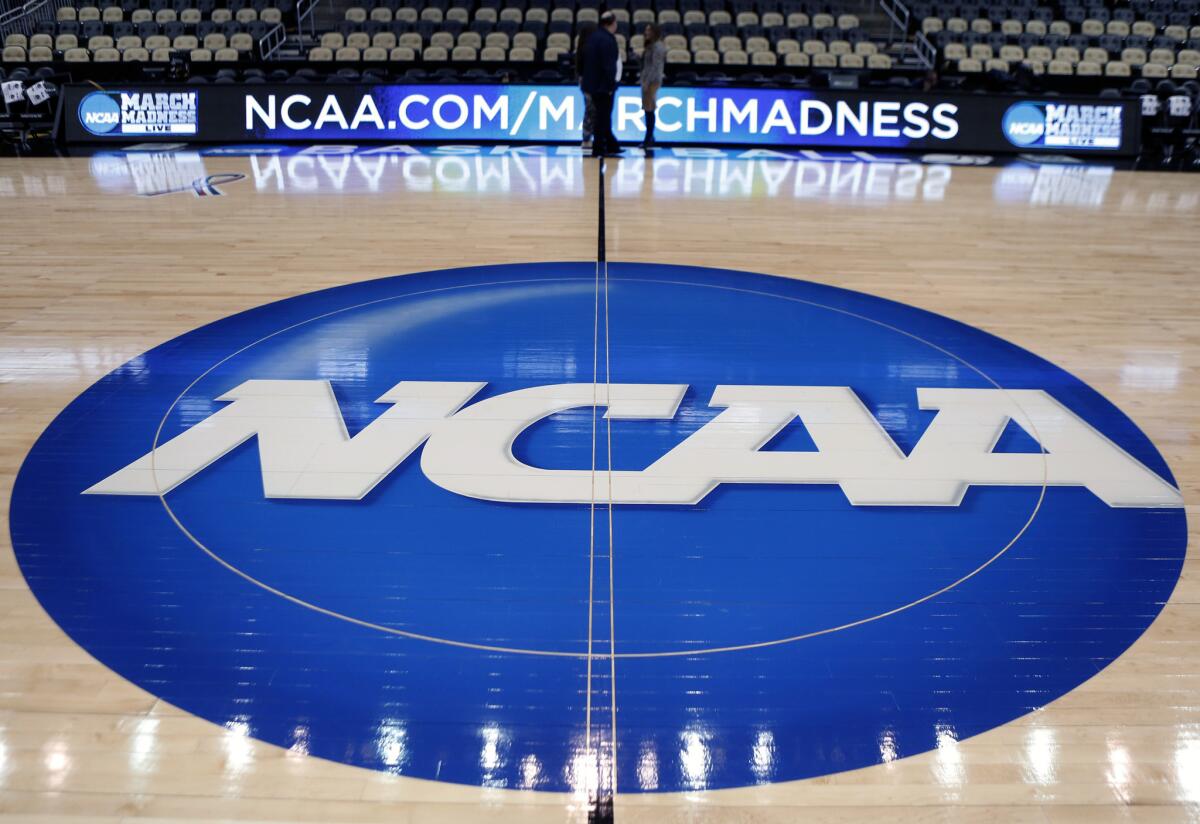NCAA’s response to California: Don’t stop our exploitation

- Share via
A new California law allowing college athletes to profit from marketing their own likenesses has ruffled the feathers of the mighty National Collegiate Athletic Assn.
Good. They need to be ruffled. And ruffled some more.
The work — and it is work — that these athletes perform has, for generations, made a ton of money for their universities. And, even more notably, their efforts have enriched the NCAA, which in 2016 (the most recently available report to the IRS) had revenue exceeding $1 billion, net assets exceeding $400 million and a payroll of more than $70 million — $2.4 million of which went to its president, Mark Emmert.
That’s a remarkable amount of wealth and income built on the play of young men and women.
Yet the NCAA is digging in its heels, describing the measure as an unconstitutional interference in interstate commerce and threatening to shut California out of NCAA competitions, including, irony not intended, lucrative bowl games and the March Madness men’s and women’s basketball tournaments.
The reason?
Letting athletes in some schools and not others profit from their own marketing agreements will lead to an uneven playing field because “it gives those schools an unfair recruiting advantage.”
Oh, please. As if college teams are evenly matched now in either caliber or recruiting appeal. Division I football teams include perennial powerhouses like Alabama and Ohio State (in Columbus), and perennial flops such as the University of Louisiana-Monroe and Ohio University (in Athens). To argue that they compete at par now, either on the field or in recruiting players, is ludicrous.
The NCAA also argues that “NCAA member schools already are working on changing rules for all student-athletes to appropriately use their name, image and likeness in accordance with our values.” Fine. Maybe this will speed things along, especially if other states follow suit.
The new California law notably doesn’t allow athletes to get paid directly by the schools. That’s a difficult debate, framed in part by a 2015 appellate court decision that preserved, for now, the basics of the NCAA’s amateur sports model. But it’s grotesquely unfair for universities to earn millions in revenue from sports programs that do not pay the people doing the work that creates the market: the athletes.
But that’s a fight for another day. At the very least, student-athletes should be able to profit from their own names and likenesses even if the fame arises from their amateur-level performances.
Will that give some schools even more of an advantage than they have now? Probably. But that’s not anywhere near the injustice of people working hard to achieve skills from which others profit.
In fact, there’s a word for that: exploitation.
More to Read
A cure for the common opinion
Get thought-provoking perspectives with our weekly newsletter.
You may occasionally receive promotional content from the Los Angeles Times.










